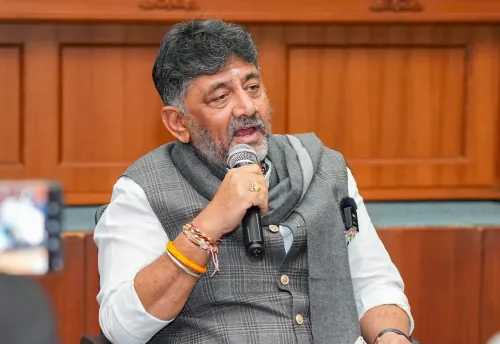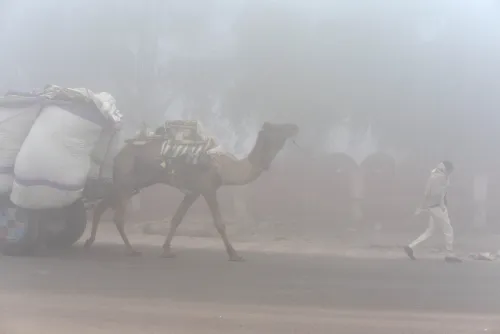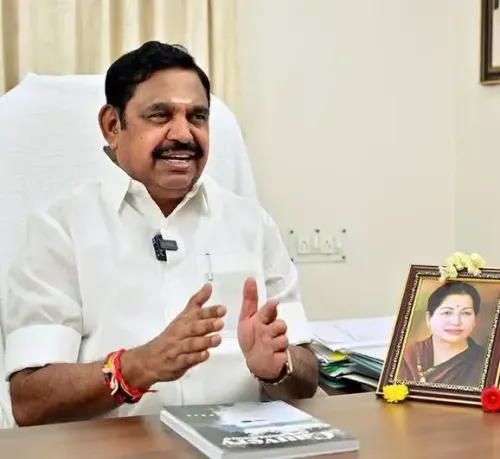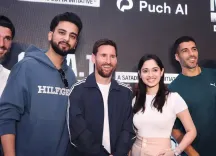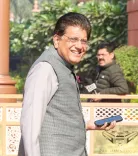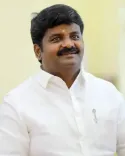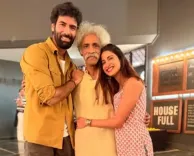Do Figures Really Favour the INDIA Bloc's VP Candidate?
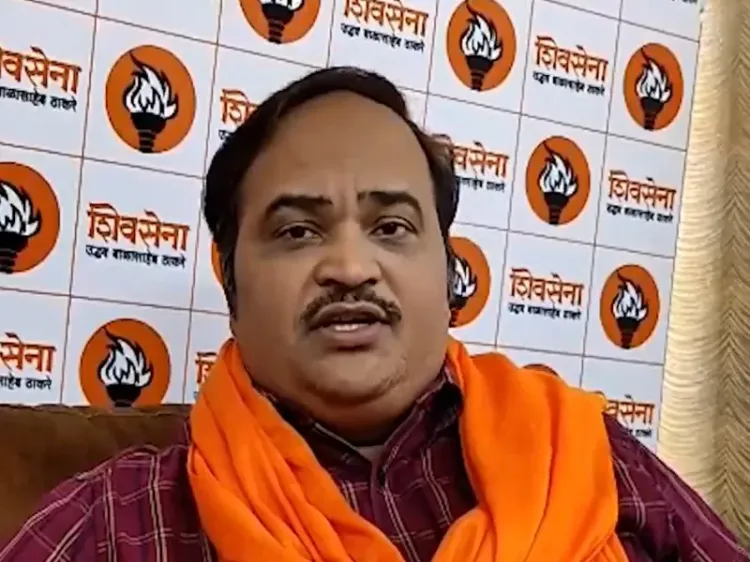
Synopsis
Key Takeaways
- INDIA bloc believes in the potential for cross-voting.
- The election is a battle of ideologies, not just candidates.
- MPs are urged to vote based on conscience, not coercion.
- Political alliances may depend on pressure tactics.
- Rahul Gandhi's absence should not be misinterpreted as disengagement.
Mumbai, Sep 9 (NationPress) As the voting process for the Vice Presidential election commenced on Tuesday, Shiv Sena-UBT spokesperson Anand Dubey showcased optimism regarding the Opposition's prospects, asserting that the statistics seem to favor the INDIA bloc.
The election for the 15th Vice President follows the surprising resignation of Jagdeep Dhankhar just two months ago. Current votes are being cast by members of both the Lok Sabha and Rajya Sabha, who must choose between the National Democratic Alliance (NDA) contender, CP Radhakrishnan, and the INDIA Bloc’s candidate, former Supreme Court judge B. Sudershan Reddy.
In a conversation with IANS, Dubey remarked: “The previous Vice-Presidential election occurred in 2022, and it usually happens every five years. However, this time we are holding another election within three years, which is rather unusual. Once an election is called, there is no turning back. This race is not merely between two individuals, but rather two ideologies - one that cherishes the Constitution, and another that promotes dictatorship and arrogance.”
“Members of Parliament must cast their votes in alignment with their conscience. If they uphold democracy and constitutional integrity, they should support the INDIA bloc candidate. Otherwise, they might succumb to pressure from those in positions of power. We will see how many choose bravery over coercion,” he added.
When asked about his expectations for the outcome, whether the INDIA bloc candidate would triumph or if NDA's Radhakrishnan would emerge as the next Vice President, he stated: “There are always two results in any election—winning or losing. Yet, every candidate enters the race with hopes of victory. Our candidate, B. Sudershan Reddy, is a former Supreme Court judge known for his integrity and profound understanding of the law. CP Radhakrishnan is also a seasoned politician. The contest is undeniably close. However, we believe that some MPs, through secret voting, will heed their conscience and vote for what is right.”
Dubey further explained that although the INDIA Bloc does not maintain a clear majority, evolving political dynamics and cross-voting could be advantageous.
In response to the Bharat Rashtra Samithi (BRS) and Biju Janata Dal (BJD) opting out of voting, he deemed it a lost chance for unity in preserving democratic values.
“In any election, especially with secret ballots, outreach to all parties is essential. It is hard to determine who supported whom. Nonetheless, it’s regrettable that the BRS and the BJD did not collaborate with us during such a vital occasion. Nevertheless, we are hopeful that MPs from these and other parties will prioritize the nation’s best interests when voting,” he stated.
Dubey also highlighted that while the ruling NDA might seem robust on paper, its coalitions frequently depend on coercion and political favors.
“The government garners support from several parties not formally aligned with the NDA. That backing often stems from pressure rather than genuine conviction. Nonetheless, we are confident that parties disenchanted with the BJP’s governance may opt to support our candidate,” he remarked.
Regarding criticisms of Congress leader Rahul Gandhi for traveling to Malaysia during India's flood crisis and this significant election, Dubey dismissed the concerns.
“Rahul Gandhi spent about 15 to 20 days in Bihar, engaging with affected communities and staying connected through phone calls. He is actively involved in all strategic discussions. Unlike the BJP, where authority is concentrated in a single individual, the INDIA bloc operates as a collective. Leaders like (Congress President) Mallikarjun Kharge and (Congress General Secretary) K.C. Venugopal are actively collaborating with various parties,” he asserted.
He emphasized that Rahul Gandhi’s absence should not be misconstrued as a lack of political engagement.
“He is the Leader of the Opposition in the Lok Sabha and retains complete oversight of his party. Every alliance member is fulfilling their responsibilities, and we are optimistic that the results will reflect our collective endeavors.”



